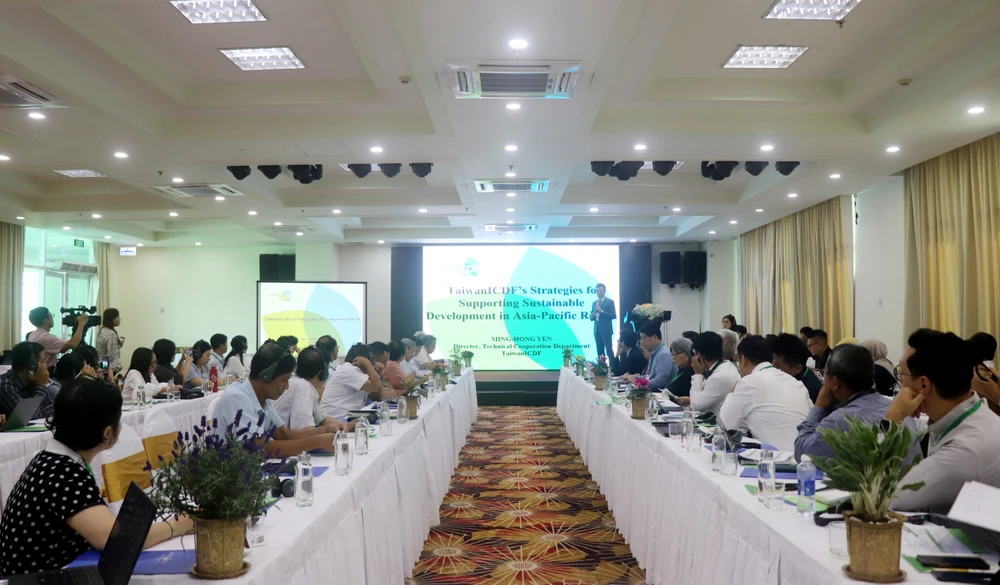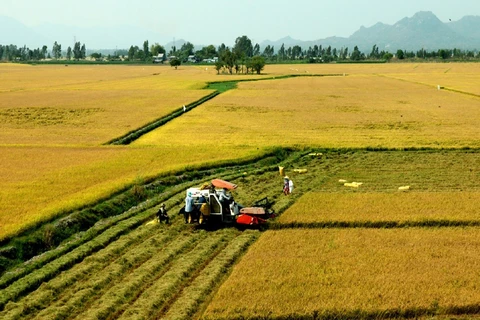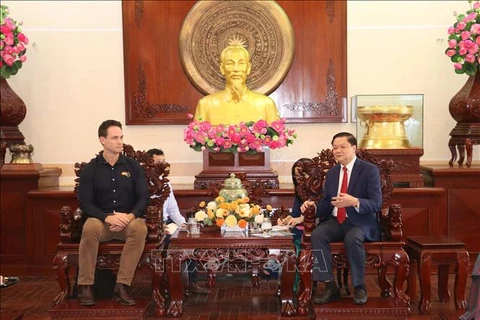
Can Tho (VNA) – The International Rice Research Institute (IRRI) organised a conference in the Mekong Delta city of Can Tho on October 9 to launch the Capacity Building for Sustainable and Low-Carbon Rice Innovations in Southeast Asia (CABIN) project. The aim is to promote rice straw management in Southeast Asia in the 2024-2028 period, and low-carbon, sustainable agriculture for the future.
The project, funded by the Taiwan International Cooperation and Development Fund (Taiwan ICDF) covers five the Southeast Asian countries of Vietnam, Laos, Cambodia, Indonesia and the Philippines. It is expected to help open a new beginning in sustainable rice production in the region.
In the period, the CABIN project will see experts work together to build annual plans for sustainable and low-emission rice production, developing training materials, field demonstrations, and technology transfer.
Vietnam Rice Industry Association (VIETRISA) Chairman Bui Ba Bong said that promoting sustainable development of the rice sector is an important task of all Southeast Asian countries.
He held that the countries need to quickly convert unsustainable practices to sustainable ones, mitigate the negative impacts of climate change and protect the environment, reduce greenhouse gas emissions, and enhance farmers' resilience, productivity and rice quality.
Financial support from Taiwan ICDF and technical support from IRRI will make important contributions to water, straw and fertilizer management for rice production in Vietnam.
In Vietnam, the project will be combined to the project to develop 1 million hectares of high-quality and low-carbon rice area in association with green growth in the Mekong Delta region.
Le Thanh Tung, Deputy Director of the Department of Crop Production under the Ministry of Agriculture and Rural Development, estimated that the total annual straw output from rice cultivation in the five countries under the CABIN project is about 150 million tonnes, accounting for about 20% of the total global output. Every year, Vietnam produces about 43 million tonnes of rice, with 43 million tonnes of straw, of them 24 million tonnes by the Mekong Delta. Therefore, how to use this straw source is a matter of concern, he said.
Taiwan ICDF representative Ming Hong Yen committed to joining efforts to enhance sustainable rice development, improving livelihoods and income for farmers in Southeast Asian countries.
With scientific and technological advances and innovations deployed in small, sustainable rice hectares within the project, it will make a start towards a path of sustainable, low emissions rice production, circular economy, and green economy./.






















